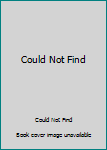Democracy and the Public Service
Select Format
Select Condition 
Book Overview
This revised edition, like the original, concerns the problems of harmonizing effective governmental administration with the requirements of a democracy. It features a new chapter on the impact of... This description may be from another edition of this product.
Format:Hardcover
Language:English
ISBN:0196317029
ISBN13:9780196317021
Release Date:January 1968
Publisher:Oxford
Length:234 Pages
Weight:1.00 lbs.
Customer Reviews
2 ratings
Democracy and the Public Services
Published by Thriftbooks.com User , 15 years ago
The book is very informative. I am half way through the book and so far so good.
Explains numbing asininities.
Published by Thriftbooks.com User , 18 years ago
Well, I read this ageless but topical book of wisdom five years ago and it made a great impression on me and how to evaluate the state of the world today. Today's war for civilization made me read it again...to see if there is hope in the face of bombings, beheadings, appeasements of numbing asininity we read about in the daily news. It's thesis stays with me when I vote, when I evaluate bureacratic silliness, politician's worth,and my choice of where to live and do business. This book explains how a civilization can devolve or evolve through the decisions, actions, or indecison, inaction of those public servants who are not elected, but appointed. Frederick Mosher's thesis is about how the bulk of governmental decisions and actions are determined and influenced by the background, associations and values of educated-or-not, un-elected, administrative officials. The author reminds us that our government,and democracy should be *by" the people, as well as of and for the people; evidenced by our country's early hope to be governed by all the people such as in the New England Town meetings. We can see how our direct democratic participation is first delegated to popularly elected representatives who then select and delegate powers to other officers. As the administrative tasks of government begin to outnumber the elective officers, a third step away from directly participative democracy is taken with the designation of un-elected, un-removable administrators who are chosen merely on criteria of social class, family, general competence and special skills. Mr Mosher makes it clear that in every developed country in the world the vast majority of public officers are in this last class. They have specialized skills and competences that the elected officials do not usually possess, and it is obvious that this third tier of public officers make decisions of great significance for all the people. The book examines just how this disparate assembly of the elite specialists and professionals exposes a glaring need for generalists, which, if included, these generalists could thus beget a strong bureaucracy which instead of being a threat to democracy, becomes its greatest pillar... if sufficiently represented.In other words the educational process through which professionals are produced needs broadened, more humanizing education programs. The author's conclusion discusses how the public officer's decisions usually will require some kind of interpretation of the public and public interest! This will depend principally upon the system of education. There is (or there should be) high ethical content in most significant public decisions. A basic standard of justice for value-laden decisions demands fairness and charity! Ultimately the possibilities of a truly democratic public service would depend upon individuals from all walks of life progressing to higher education, and of course, would depend upon the bias or un-biased orientation they receive in un





